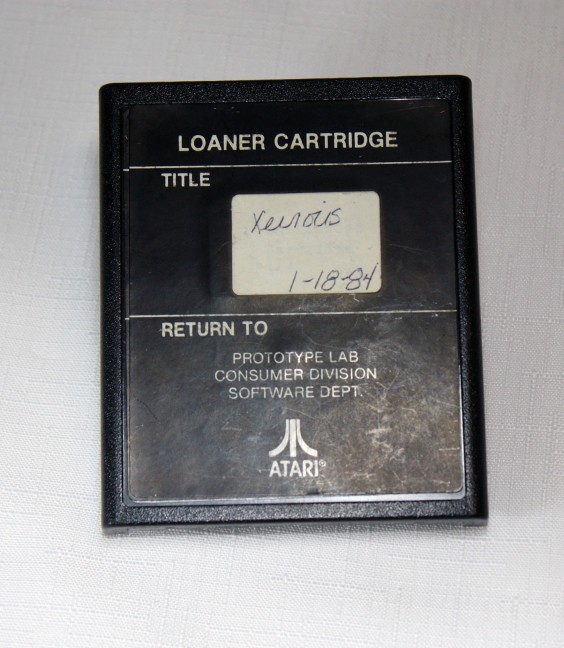Abandoned Software at The Digital Game Museum
Written by Dave Beaudoin // August 2, 2015 // Game Lore // No comments
The Electronic Frontier Foundation and others have recently been working to establish a special class of copyrighted works called Abandoned Software. Here at the Digital Game Museum we understand the importance of preserving the entirety of game culture, including digital assets. Our focus on preserving the physical artifacts of gaming culture in order to contextualize gameplay would be almost pointless without the games themselves. Seeing the vibrant box, cabinet, and cartridge art of classic games like Arkanoid, Defender, and Tempest compared against the rudimentary graphics of the era tells an important story about the role of imagination in gaming and helps to establish digital games among other classic abstract games like chess and Go.
While defending the rights of creators is important, we feel that the current copyright laws overreach in that defense and actively damage the ability of institutions like ours to maintain an accurate collection of digital artifacts. Copyright law was designed to protect the physical and analog world where change takes years or decades. In the digital space, change happens over months and the ability to maintain a historical perspective on the rapid pace of change is nearly impossible with the current restrictions in place.
A great example of these restrictions in action arose recently with our discovery of a previously unknown version of Xevious for the Atari 2600. This near-complete version of an unreleased port of one of the most popular arcade games of all time represents exactly the type of artifact that we started the Digital Game Museum to preserve. The physical cartridge and its contents are safe in our collection, and as such we can make the game available for play at the museum or as a part of any traveling exhibit we host. However because our collection is held in the public trust, we don’t want to limit the ability of people to experience this piece of video game history. That is where the current state of copyright law comes into play.
The issue with Xevious is that while it was certainly abandoned, it wasn’t abandoned in the same sense as other abandoned software. As it was never released publicly, it remains internal intellectual property of whomever holds the Atari assets. Because the Xevious IP has been continually active as part of multiple Greatest Hits releases and because the current Atari owner has been actively porting older games to mobile and other platforms there can be no argument that the IP has value.
As a non-profit, public entity, the Digital Game Museum does not have the resources to levy a legal challenge against an IP owner. Using that as a base, part of our desire is to make sure that these games are able to be experienced by everyone. We can publish pictures of the cart itself but due to copyright restrictions we’re unable to release the code contained on that cartridge, which severely limits the non-local resident in their ability to experience this game. As a part of our mission to present the history of gaming to the widest audience possible, we should be allowed to make this game playable for anyone who wants to play it, but with current copyright rules we are unable to do so. As an educational institution, aspects of what we are able to do in terms of distribution would be covered under current fair use law; however good standards for fair use in preservation and exhibition are not defined.
Luckily, prior to our receipt of the actual prototype cartridge, the code was released anonymously. We have been able to verify that this code is the same as what is on our cart but did not come from our collection. We did work with the individual who had the other copy of the code to release it in conjunction with our unveiling of Xevious in order to increase interest in preservation of these artifacts and hopefully spark conversations about game code preservation and the role of digital copyright in museums.
The Electronic Freedom Foundation is doing important work to secure preservation and exhibition copyright exemptions for museums, and here at the Digital Game Museum we fully support the EFF. We believe that it is important that we not only preserve the physical artifacts of the digital history of gaming as an art form and culture, accessible to all but to also be able to provide the context for those artifacts in a publicly accessible manner.
Dave Beaudoin, Board of Trustees


